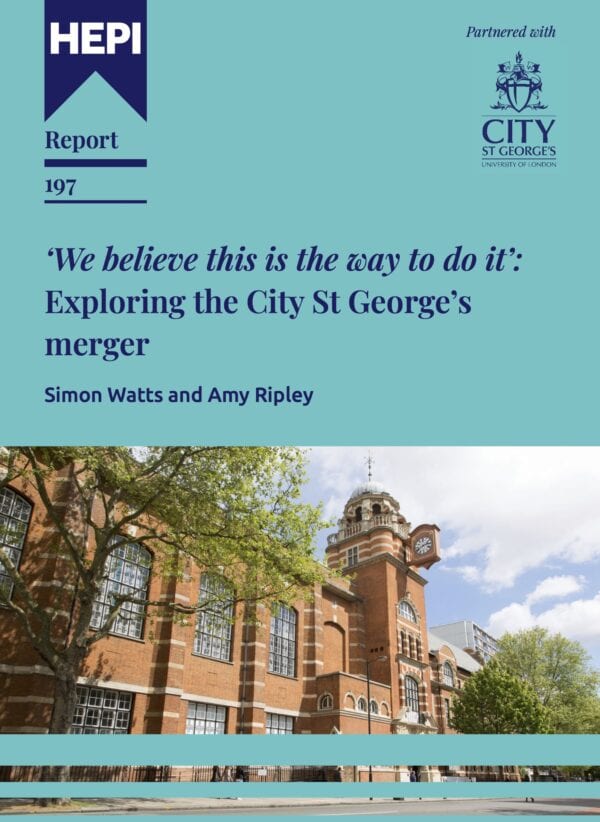More than two-thirds of full-time students now undertake paid work during term time, major survey reveals
The Student Academic Experience Survey (SAES) 2025, published today by Advance HE and the Higher Education Policy Institute (HEPI), reveals a dramatic rise in the proportion of full-time undergraduates undertaking paid work working during term time – now at 68%, up from 56% in 2024 and just 42% in 2020.
This significant shift is reshaping the university experience, with students reporting a notable decrease in time spent on independent study as they balance employment and academic commitments.
The annual survey, which captured the views of over 10,000 full-time undergraduate students across the UK, provides compelling evidence of how cost-of-living pressures are affecting the student experience.
Key findings include:
- Term-time employment: 68% of students now undertake paid work during term time – a 12-percentage point increase from 2024.
- Independent study time: Hours spent on independent study have decreased significantly, from 13.6 hours per week in 2024 to 11.6 hours in 2025.
- Value for money: 37% of students perceive their course as good value for money (down from 39% in 2024), while 29% perceive poor value.
- Expectations: 26% of students say their experience has exceeded expectations – an increase from 22% in 2024 and double the figure from 2021.
- In hindsight: 11% of students would now choose an option outside higher education if they could decide again – nearly double the 6% recorded in 2024.
- Assessment feedback: The quality and speed of assessment feedback has improved significantly, with 61% of assignments now returned within two weeks, up from 45% in 2024.
For the first time, the survey also explored students’ expectations regarding institutions’ roles in mental health support, revealing that 40% believe universities should provide comprehensive mental health services, including for severe and complex cases.
The survey introduces new insights into how different qualification pathways affect student experiences. Students entering with T-levels and International Baccalaureate qualifications reported higher perceptions of value for money, with T-level students most likely to have their expectations exceeded. However, the data reveal that qualification background is significantly linked to perceptions of the higher education choice made. The findings suggest the need for more tailored support and guidance for students from different qualification backgrounds from both the UK and overseas.
The Survey also puts a spotlight on the experiences of international students, finding that 77% of international students work during term-time, compared with 65% of home students. A third of international students (35%) say their experience exceeded their expectations, more than the 23% of home students who say the same, but only half of international students (49%) would, in hindsight, choose the same course and university again.
In a new question added to the survey for the first time in 2025, students were asked how many academics know their name and the progress they are making on their course. The top results, chosen by 42% of students was for 1-to-3 members of staff, with slightly fewer (33%) saying 4-to-6 academic staff members. On average, students say around four academics know their name.
Alison Johns, Chief Executive of Advance HE, said:
While the higher education sector faces significant financial challenges, it’s encouraging to see evidence of resilience in the student experience. The quality of teaching and assessment feedback remains strong, and more students are having their expectations exceeded than ever before. However, the striking increase in students undertaking paid work alongside their studies signals a fundamental shift – and institutions will be thinking carefully about how they accommodate this change. We need to consider how teaching, learning and support can evolve to better serve students who are balancing multiple commitments while maintaining academic quality.
Nick Hillman, Director of HEPI, said:
This is an extraordinarily important survey because it not sanitised like some of the official surveys, because it has been running for two decades and because it is large, covering over 10,000 students each year. The benefits of tracking students over time are proven this year because we can see in positive ways that the post-COVID generation of undergraduates are doing better than their immediate predecessors.
However, not everything is rosy for either students or institutions. Given the severe funding challenges, many students are struggling to pay their bills and institutions are often struggling to provide their students with what they expect, though both students and staff have also displayed considerable resilience in the face of adversity. The fact that a large majority of students now undertake paid work during term time, and often at a high number of hours each week, suggests the student experience is completely different to the norm when today’s policymakers were in higher education.
Notes for editors:
Advance HE helps HE institutions be the best they can be by unlocking the potential of their people. We are a member-led, sector-owned charity that works with institutions and higher education across the world to improve higher education for staff, students and society. We are experts in higher education with a particular focus on enhancing teaching and learning, effective governance, leadership development and tackling inequalities through our equality, diversity and inclusion (EDI) work.
HEPI was established in 2002 to influence the higher education debate with evidence. We are UK-wide, independent and non-partisan. We are funded by organisations and higher education institutions that wish to support vibrant policy discussions, as well as through our own events. HEPI is a company limited by guarantee and a registered charity.







Comments
Add comment